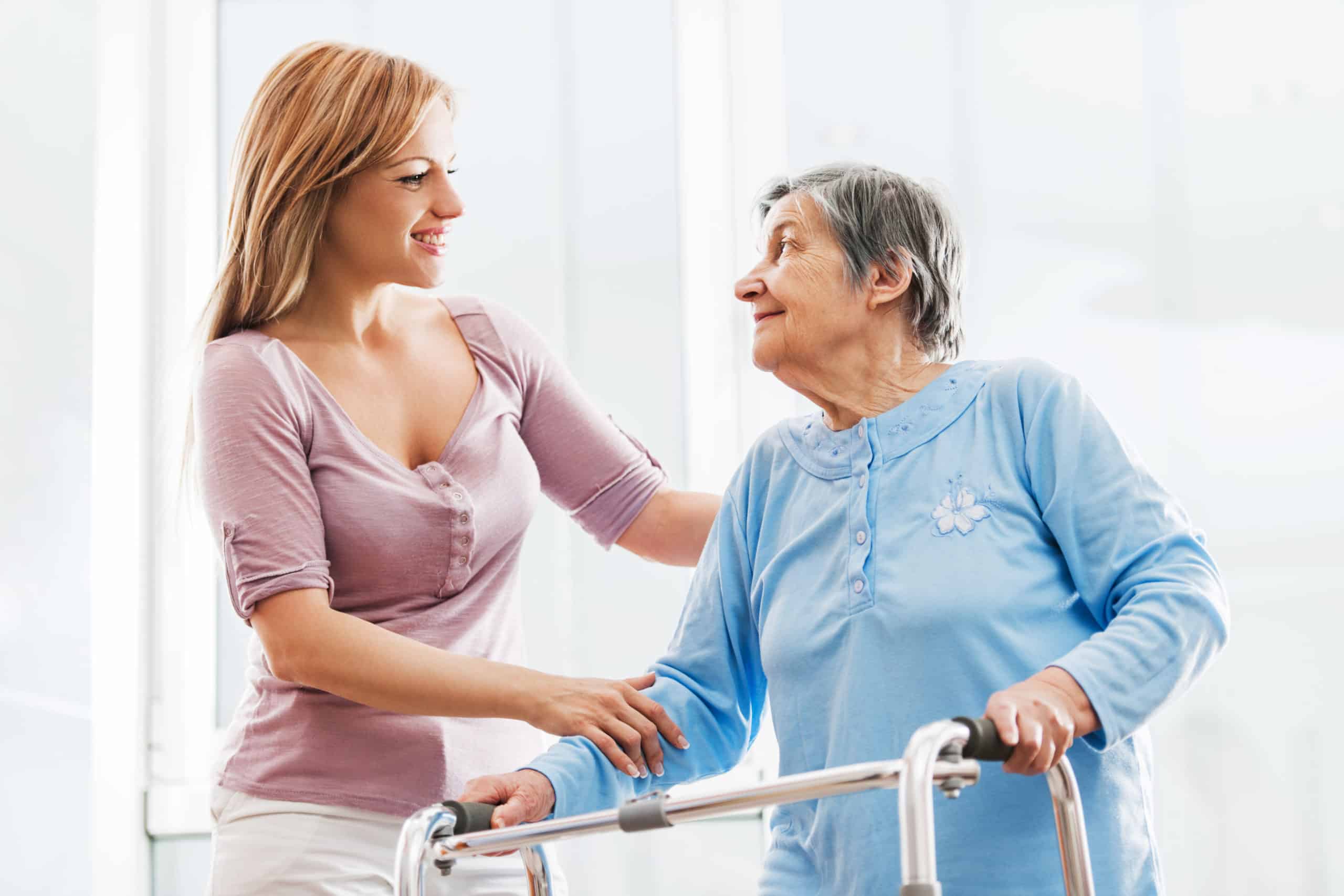Individuals living with dementia or Alzheimer’s disease are at an increased risk of a fall due to many factors related to this chronic and progressive condition. Falls can be debilitating, sometimes fatal, so it is prudent to take a look at factors that could cause such accidents, while also addressing aids that may make life safer and easier every day for those living with dementia and Alzheimer’s disease.
Intro mobility aids; National Alzheimer’s Disease Awareness Month in November provides the opportunity to spread information and awareness regarding this debilitating condition. Do you know someone who struggles with dementia? Know that those people with Alzheimer’s and other types of dementia are three times more at risk of breaking a hip during a fall- and the chance of a hip fracture leading to death is also higher.
So why are people with dementia facing a greater chance of a fall and subsequent mobility issues? Some distinct risk factors that make this population more at-risk and in need of mobility aids include these:
Medications
It is not uncommon for individuals with dementia to be prescribed various antipsychotic and antidepressant medications, including benzodiazepines. Unfortunately, the medication side effects could be contributing to the overall risk of a fall. Some of these side effects include:
- Dizziness
- Drowsiness
- Low blood pressure, particularly when standing up from a seated or lying position
Speak with your loved one’s primary care provider regarding reducing the risks of a fall if you believe they exhibit any of these medication side effects or symptoms.
Sight
Another often overlooked issue with dementia is how visual information is perceived and processed by the individual. That is, many people with dementia experience visual-spatial issues that could contribute to a fall. This may result in the person misjudging the depth of steps or stairs, causing them to trip and fall. Uneven terrain or glares on the surface of the floor could also cause problems that may increase fall risks. Many caregivers do not realize the impact that dementia- including Alzheimer’s- has on vision and sight.
Cognition
Another symptom of the progression of dementia or Alzheimer’s is related to cognition, including decision-making. The disease may compel many living with dementia to try and navigate slippery surfaces or steep steps unassisted. Some may not be wearing proper footwear or may overlook unfavorable conditions due to the cognitive changes that occur.
Fatigue
Dementia causes a condition called ‘sundowning’ which is the time after dark when those afflicted struggle the most with symptoms. This also coincides with when the most falls occur among those who have this condition. Fatigue from the day and the symptoms of their disease can make them more vulnerable to a fall, as well as a subsequent injury.
Restlessness
Dementia can cause restlessness which also makes the individual prone to a fall. Have you ever noticed how someone with Alzheimer’s or dementia seems fidgety? It is this symptom that may incline them to get up and down or wander- again, increasing the propensity for an injurious fall.
Aphasia
Aphasia is a symptom of dementia that surrounds the inability to vocalize needs or to communicate effectively. If an individual with dementia is struggling to express themselves, they may try to do things unassisted to meet these needs. For instance, they may try to get up out of bed in the night for a drink or to use the toilet, rather than reach out to a caregiver or loved one for help. Aphasia is also common among those who have had a stroke or brain injury, too.
Pain
Discomfort or pain could also increase an individual’s risk of a fall if they also have dementia. Watch for signs that they are experiencing pain, such as facial expressions when moving about or groaning, and have them assessed by their physician. Many will not report pain to loved ones for many reasons, including the inability to express themselves adequately.
Surroundings
What is the living environment like? It is important to assess dangers and fall hazards early and often to help prevent a debilitating often catastrophic injury. Consider the following tips to create safer situations and surroundings for individuals with dementia:
- Proper lighting is integral. Replace bulbs promptly and consider LED for longer-lasting, brighter light in the home environment.
- Consider signs that indicate where the restroom, stairs, and doors are located. Label cabinets and cupboards with what is inside.
- Choose contrasting colors for floors, furnishings, and fixtures to make them more prominent and easier to see for those living in the home.
- Invest in simple mobility aids and devices to create a more accessible home. Install grab bars for support, ramps for easier entry, and a shower seat to reduce the risk of a fall on a slick bathroom surface.
Talk to the team at Pacific Mobility regarding mobility aids and equipment to assist individuals with dementia or Alzheimer’s, as well as anyone with disabilities, physical limitations, or accessibility issues. Call or visit today.
President, Husband, Father, Grandfather Graduate of UC Davis- Bio Sci Major- Go Aggies! Jeff has extensive experience in all of Pacific Mobility’s products and services, and specializes in accessibility products as well as stairlifts, ceiling lifts and custom wheel chairs. His hobbies include spending time with family, gardening, mountain biking, exercising and off road motorcycle riding.
24 years as Owner/President of Pacific Mobility Center – selling, installing, and servicing stairlifts, porch lifts, ceiling lifts, pool lifts, handicap ramping, specialty wheelchairs, scooters, power wheel chairs, and other power mobility devices
Certified Environmental Access Consultant since 2008
Licensed General Contractor since 1998
Certified Aging in Place Specialist since 2016
Board Member for Home Access Professionals
Member of Association of Members of the Accessibility Equipment Industry (AEMA)




